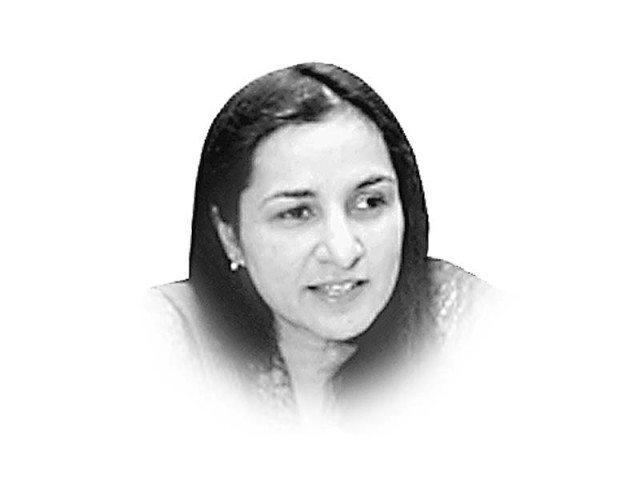Indo-Pak war of 1965: Then and now
If there is a lesson to be drawn from 1965 War, it is that Kashmir issue requires a principled and viable resolution

The writer is a political and security analyst, an anchor at Channel 24, and a fellow of Harvard University’s Asia Centre. She tweets @NasimZehra
For me, a new world, the world of war, hitherto unknown, had begun to unfold. The days that followed were filled with new emotions, new talk and new activity. The sound of war became louder, with there being shelling and bombs. We lived near the cantonment and not very far from the Wagah border, so the war machines in action were audible. Our neighbourhood soon emptied as people left for safer zones. My father made clear that we would go nowhere. We stayed home as our cousins moved in with us. Often, we dived under the dining table and under staircases at the howling of overhead fighter jets and devastating sounds of shelling. Interrupting our games, we would occasionally follow the safety instructions. It seemed some civilian wardens were advising citizens on war-time safety matters. We had to put out the lights at night or else the enemy planes would spot us and bomb us, we were told. In the stores there was a scramble for black paper, which people wanted to line the windows and ventilators in their houses, so light couldn’t escape.
Occasionally, we would tag along with the elders in the dead of the night, to see the effects of the Indian shelling on the golf course across our house. One unforgettable morning, as I collected flowers with my sister for my grandmother’s grave, I saw a dog fight above our house. We were left petrified for some days.
With excitement also came a sense of vulnerability. There was no school, no office. My father was attentive to all news bulletins on the radio. Battle updates were broadcast, as well as the the resolve to fight on. Melody queen Noor Jehan ruled the airwaves and we heard the national anthem sung by her, Nasim Begum, Shaukat Ali and many others. As a six-year-old, all these voices and words became deeply embedded within hearts and minds. There were stories that while Indian jets were bombing Lahore, holy men in green would appear from the waters of the Ravi and hold on to the bombs. Lahore was the city of Sufis and these holy men did not want their city destroyed, went the story.
War continued for weeks. Shelling, bombing and fighter planes pierced the skies. News of deaths and destruction trickled down to us. But mostly we heard the anthems. There was some conferencing among the elders. We heard that President Ayub Khan was to address the nation one afternoon. The colonel’s family next door and my parents decided that it was no longer wise to stay on in Lahore. Our car was packed with beddings, some clothes and food, and the announcement by the president was awaited. We were told Ayub Khan had announced the end of the war. Disappointed that our trip to another city was cancelled, we helped unload the car.
Those were different times. Today we are wiser, and better informed by military generals on what actually happened during that war. Former ISI chief Lt Gen Mahmud Ahmad’s book tells the truth.
Fifty years later, we know the facts of the 1965 war. As both India and Pakistan scream out their respective narrative of victory, some facts are cast in stone. One is that Pakistan first launched Operation Gibraltar through irregulars to encourage an uprising in Indian-held Kashmir (IHK). Second, we followed with Operation Grand Slam when Pakistani troops were sent into IHK in the hope of taking control of the region and with the misplaced confidence that India will not take the war to the international border. Provoked by Pakistan’s operations in IHK, India attacked Pakistan. Pakistani forces on ground and air fought bravely. They courageously performed the tasks assigned to them and while facing a better equipped and well prepared enemy, they valiantly defended their homeland. The war that ended in ceasefire had no victors, and Pakistan’s decision-makers committed a strategic blunder in taking the country to war.
If there is a lesson to be drawn from the 1965 War, it is that the Kashmir issue requires a principled and viable resolution. Operation Gibraltor, Operation Grand Slam, the Kargil operation and India’s 1983 Siachin Operation, are not the way forward. Kashmir needs a solution along the lines of that which was initiated by Nawaz Sharif and Atal Behari Vajpayee in 1999 and subsequently pursued by General Pervez Musharraf and Manmohan Singh during their premierships.
Published in The Express Tribune, September 6th, 2015.
Like Opinion & Editorial on Facebook, follow @ETOpEd on Twitter to receive all updates on all our daily pieces.















COMMENTS
Comments are moderated and generally will be posted if they are on-topic and not abusive.
For more information, please see our Comments FAQ